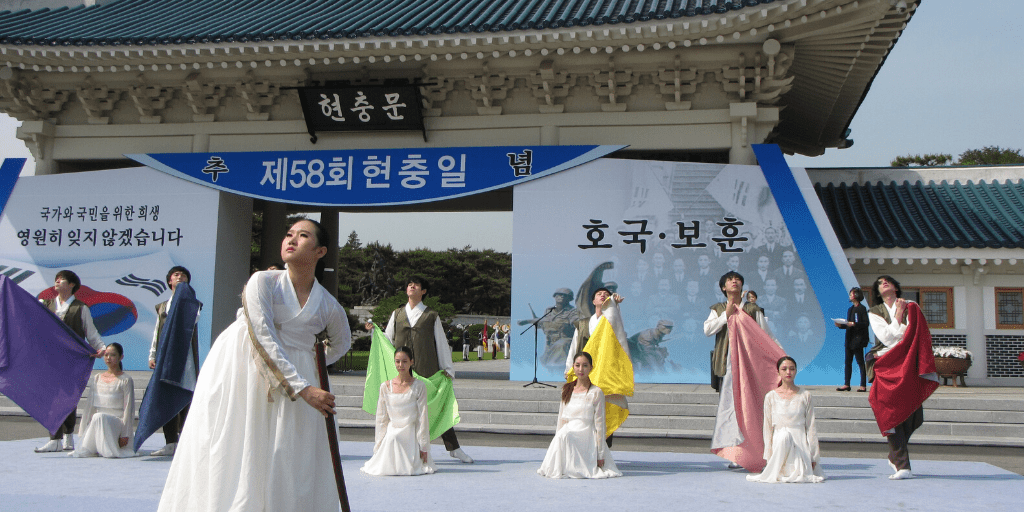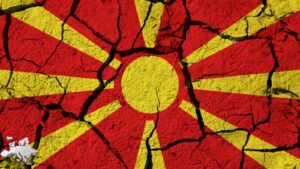We-ism is a critical cultural concept of Korea, and much of the rest of Asia, promoting group consensus and activity, over the assertion of individuality. “… rather than the individual, referred to as ‘I’, the community referred to as ‘we’, is given far more importance” (Jin, 2002, p. 84). It is generally accepted that this emphasis on cooperation and group action is related to the traditional ancient necessity in rice cultivation for group cooperation and coordinated labour by an entire village. A wheat farmer can “go it alone” with only family work, but rice farming “takes a village” with everyone working together towards a common goal. The National Museum of Korean Contemporary History (2012) translates this as “Mass Unity Spirit”.
While some aspects of individualism have taken root in Korea, in all aspects of government, private business, and particularly among the younger generations, awareness of we-ism, which can include brashness and defiance toward those outside of a group, is important for teachers and international students to ease understanding. The value of “… collective moral responsibility…” remains predominate (Kim, 2006, p. 217).
Nearly all aspects of Korean culture and tradition are affected by we-ism including school life, marriage and funerals, as well as interactions in clubs, groups and classrooms and other social organisations. Kim, writing for The Korea Times (22 June, 2009), states what is true for most Koreans, “… in my childhood, I rarely rejected, confronted, or defied the opinion of my parents, or seniors (people older than oneself).”
One well-known expression in Korea is: 大同團結, which loosely translates in English as Grouping with Solidarity. Broken down it reads as follows:
大 big
同 congenerous
團 gather
結 united
Koreans, both in the past and now, come together to create bigger unified inner groups. Proverbs in the past and now exemplifying this idea of we-ism include: 백지장도 맞들면 낫다—many hands make light work—and모기도 모이면 천둥 소리를 낸다—even flies can make thunder. One of the most globally renowned ‘we’ activities in Korea is the annual cabbage food preserving activity or 김장, the making of kimchee for winter. Women not only coordinate the planning and work within extended families and households, but also organise, make groups, and distribute kimchee to thousands of households of elderly and lower income families.
Other examples of we-ism include the 2007 Tae-An oil spill restoration, which generated a tremendous public response of volunteer groups to clean the beach and rescue birds, the coordinated actions of a multitude of groups to coordinate and welcome athletes and foreign spectators to the 2002 World Cup, and the countrywide grief and practical responses to the Sewol Ferry tragedy. University student groups, for example, from all over the country coordinated to bring water, blankets, and a comforting presence to the waiting and shocked families. Everyone in the country was affected, and an emotional participant.
We-ism is not without it negative aspects however. As we-ism is a deep part of the culture it can be difficult for outsiders, especially if they do not speak Korean, to make friends or feel fully welcome in clubs and groups, even when members are polite and welcoming. A negative effect for university students is the quiet firm social pressure to participate in group activities such as drinking or karaoke, when they would rather be studying for an exam. There can also be pressure from friends on a person to help others in ways that are strictly cheating. However, generally, for teachers, when a classroom ‘bonds’ into we-ism, mutual support among students and improved student skill at working in groups can be beneficial and productive.
References
Jin, J. Y. (2002). Commonalities and differences between the cultures of North and South Korea and the unification of the peninsula. In A. Sesay & J. Lewis (Eds.) Korea and Globalization: Politics, Economics and Culture. (pp. 79–101). New York: RoutledgeCurzon.
Kim, J-H. (2009, July 22). A Coeds Tears. The Korea Times. Retrieved from https://www.koreatimes.co.kr/www/opinion/2018/06/162_48902.html
Kim, S. (2006). The Politics of Jeong and Ethical Civil Society in South Korea. Korea Journal, 46(3), 212-241.
Ministry of Culture, Sports and Tourism: National Museum of Korean Contemporary History. Standardisation (2012). https://mcst.go.kr/kor/s_policy/dept/deptView.jsp?pSeq=1401&pDataCD=0406000000&pType=
Author
Cheryl (Farzana) Hyland, retired linguistics professor from the Department of General English at Sookmyung Women’s University in Seoul, Korea, also taught EFL/ESL in the United States and the UAE. She is still actively involved in the international EFL/ESL community with a focus on promoting student comfort, motivation, and achievement in the EFL classroom.







